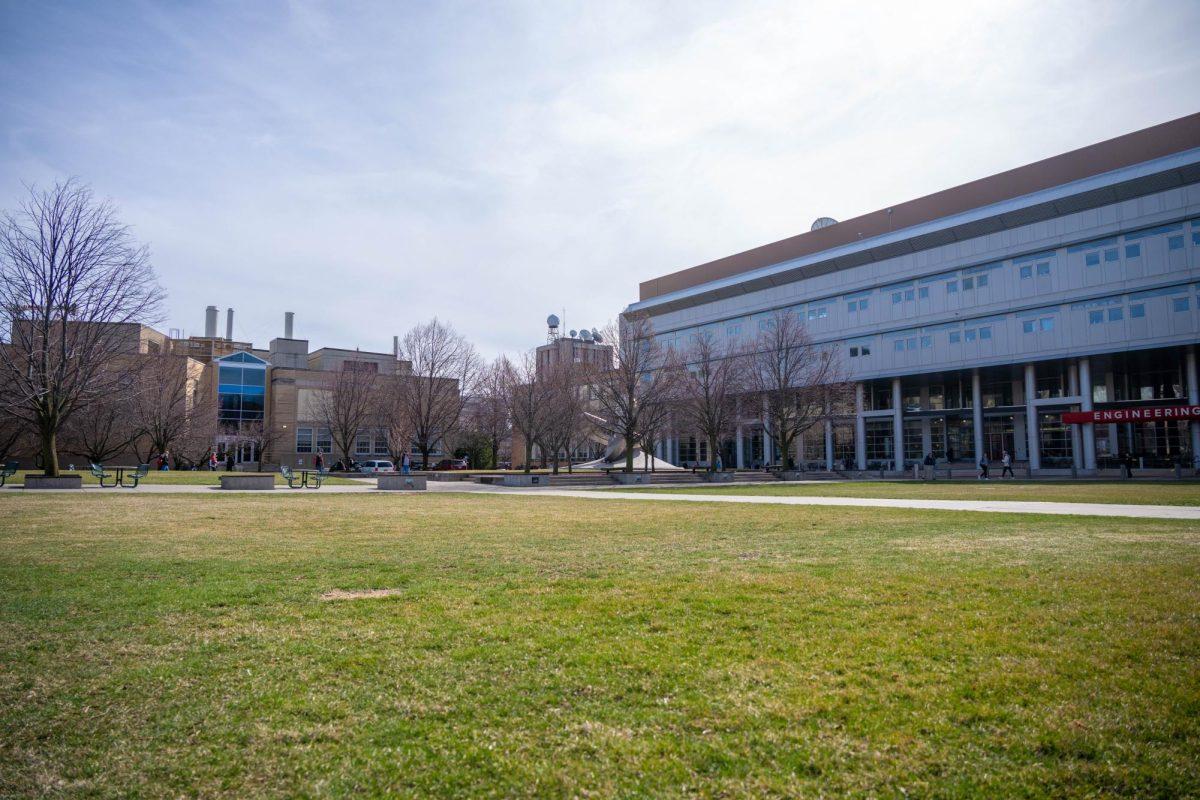Gov. Tony Evers fully approved $197 million in spending March 6 across the Universities of Wisconsin, including funds for a new engineering building at UW–Madison, according to previous Badger Herald reporting. The building was part of a deal reached in December between UW System officials and Republican legislators to restrict diversity, equity and inclusion programming on campuses, according to The Badger Herald.
Currently, the UW–Madison College of Engineering can enroll one out of every eight students who apply to the undergraduate program, Dean Ian Robertson said in an email statement to The Badger Herald. The college urgently needs this new laboratory space to conduct pioneering engineering research, according to Robertson.
In contrast to UW–Madison’s undergraduate engineering enrollment of 4,500, competitive universities such as Purdue University, University of Illinois, Penn State University, Ohio State University, Michigan State University and the University of Michigan have engineering undergraduate populations ranging from 6,000 to almost 9,500, according to UW–Madison News. Additionally, the engineering profession in the U.S. needs to grow by 15% to meet increasing demand and follow retiring generations.
Many of the building’s facilities are outdated, College of Engineering sophomore Wynton Wright said. Recently, one of the engineering labs in 1313 Engineering Hall received a much needed renovation, Wright said.
It’s surprising that such a highly ranked university has outdated spaces, Wright said. But a brand new engineering building wouldn’t have factored into Wright’s decision to attend UW–Madison.
“The culture that I’d be getting on campus is most important to me,” Wright said. “I know for some people it does matter, the age of buildings. I think what’s more important is what’s behind those buildings and the people that are in these departments and helping us in our classes.”
Recent UW study finds air sampling as emerging technology for tracking viral illnesses
When asked what facilities attracted enrolled students to their respective universities, libraries, gyms, dining halls, labs and dorms were the most popular choices, with only 25% of the 52 longest responses mentioning academic buildings, according to an Inside Higher ED survey.
New eye-catching buildings may excite prospective freshman students, but the opportunities inside those buildings are what really matter, College of Engineering junior Aubrey Barthel said.
The new building will demolish the facility at 1400 Engineering Drive, according to Assembly Bill 921. The demolition will also eliminate students’ current recreational spaces, Barthel said.
Barthel is a member of Queer and Trans Engineers on campus, an organization that will be displaced in the demolition, Barthel said.
“DEI is really important to me on a personal level,” Barthel said. “We all like hanging out in our DEI office, so it’s sad to watch our building being taken away because 1410 is where we all reside. It’s our safe space.”
Though the approved spending will in part restrict DEI programming, engineering as an overall discipline should still feel welcoming and inclusive, Robertson said. As the department seeks to meet the growing demand for engineers, it is imperative that the school attracts students from all backgrounds, Robertson said.
DEI is especially important to Wright as an African-American engineer and a minority of UW–Madison’s campus population, Wright said. In 2022, Black undergraduates made up less than 3% of the campus population, according to datafrom the UW website.
“Universities like UW–Madison need to start using this new building as a space to be able to bring more African-American and minority engineers into the space and be able to help shorten the gap that there is in society right now,” Wright said.
Graduate students who identified as domestic targeted minority students in the College of Engineering reported consistently more negative attitudes and experiences in the college compared to any other racial group, according to a 2019 UW–Madison study.
Employers need engineers from a wide variety of backgrounds, Robertson said. The most innovative solutions to modern engineering challenges emerge from teams that equally contribute their unique expertise, Robertson said.
Engineers play a crucial role in designing almost everything people use in their daily lives, from technology and healthcare devices to sustainable energy alternatives.
“There’s engineers behind most of the things that happen in our life,” Wright said. “People talk about how important business is, but if there’s not engineers making the products and ideas that you’re selling, what kind of jobs will we have?”
As a member of Engineers for a Sustainable World, Barthel hopes more funding will go toward both engineering and sustainability practices on campus in the future. The engineering student population grows each year and funding is necessary to keep up with the high demand and stay up to par with fellow universities, Barthel said.
Out of necessity, the College of Engineering has remodeled and upgraded many of the existing spaces over time, Robertson said. The college is fortunate to have alumni, friends and industry partners who have helped undertake those renovations and maintain high quality education and research, Robertson said.
The first phase of the engineering building’s construction was planned for completion in the fall of 2025 and the second in fall 2027, according to 2021 On Wisconsin alumni magazine. The College of Engineering still must raise $150 million along with the approved $197 million for the project, according to the UW–Madison College of Engineering website.
“With the deteriorating spaces, it really is a tough decision to make,” Wright said. “But, at the end of the day, I personally believe that it is needed, but it’s an unfortunate loss to DEI at the university.”












